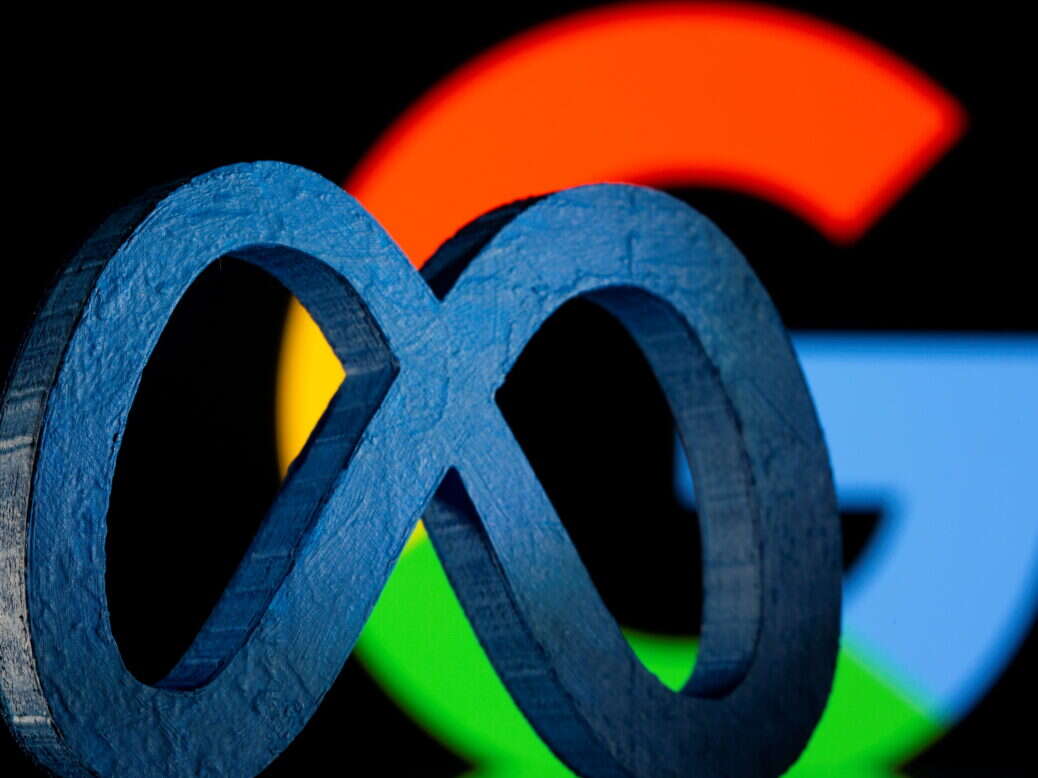
New data reveals the UK had a bumper year for advertising in 2023, but news publishers lost out as more went to the big tech platforms.
The Advertising Association/Warc Expenditure Report estimates the total UK ad market grew by 6.1% in 2023 to £36.6bn – with online formats now accounting for more than three quarters of the total.
All the growth went to tech giants with Alphabet the biggest winner. Search advertising grew 11.9% last year to £14.7bn, meaning up to around £14bn was spent with Google on search alone. Google also makes money from selling advertising on Youtube and across the web via platforms like Google Adsense and Google Ad Manager.
Online display advertising (dominated by social media platforms like Facebook and Tiktok, and which also includes Youtube) grew by 11.3% to £12.9bn.
The only growing segment for professional content producers was broadcaster video on demand, which grew 15.9% to £980m.
UK publisher advertising spend in 2023 at a glance
- National newsbrands fell 6.3% overall and 5.8% just looking at online
- Radio fell 3.3% overall and 7.1% looking at online only
- Regional newsbrands fell 10.1% overall and 7.6% just for online
- Magazine brands fell 9.1% overall and 13.7% online.
The grim picture for ad-funding of online journalism in 2023 was fuelled by factors including: falling referral traffic from social media to publishers and a technology ecosystem that favours tech platforms like Meta and Alphabet which have monopolistic positions and forensic levels of audience data. Advertisers have also followed consumers to addictive video platforms like Youtube and Tiktok.
The new figures help explain why formerly wholly ad-funded titles like Mail Online are now looking for subscriptions revenue.
AA/Warc predicts that newsbrand and magazine revenue (print and online) will continue to decline this year, albeit at a slower rate.
James McDonald, director of data, intelligence and forecasting for WARC, said: “Our latest survey of media owners confirms 2023 as a challenging year for most, with few properties recording gains and spend instead further consolidating within search and online display formats – particularly social media. Combined, these digital staples are on course to account for almost four in five pounds spent on advertising in the UK next year, up from a share of 51% just five years ago.
“Our forecasts assume that the UK’s economy will begin to break from the pattern of stagnation that has come to define recent quarters. Easing inflation over the coming 18 months should encourage more favourable trading conditions within the advertising sector, facilitating growth across a broader range of channels in turn.”
Google delays death of cookies on Chrome
Looking ahead, many publishers are concerned about the impact of Google rolling out generative AI-backed search which will answer more queries directly rather than referring readers to sources.
Some publishers will have taken comfort from the news on Wednesday that Google has decided to delay phasing out third-party cookies on Chrome, which was due to be completed this year. These cookies underpin much online advertising by allowing marketers to track user behaviour.
Google said: "We recognise that there are ongoing challenges related to reconciling divergent feedback from the industry, regulators and developers, and will continue to engage closely with the entire ecosystem.
"It's also critical that the CMA [UK Competition and Markets Authority] has sufficient time to review all evidence including results from industry tests, which the CMA has asked market participants to provide by the end of June.
"Given both of these significant considerations, we will not complete third-party cookie deprecation during the second half of Q4."
Email pged@pressgazette.co.uk to point out mistakes, provide story tips or send in a letter for publication on our "Letters Page" blog
